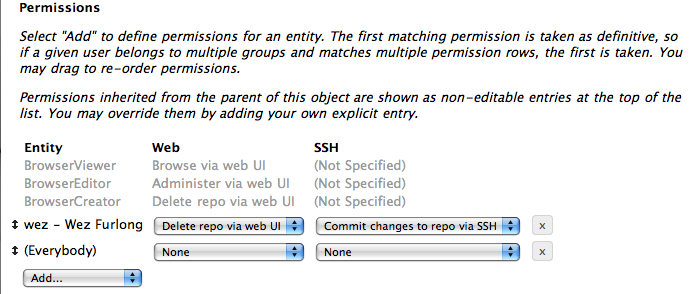Another OSCON is done. As usual, it was a great mix of folks and ideas
across many different areas of OpenSource technology.
The most valuable track at these conferences (for me, at least) has become
the hallway track. This is due in-part to my becoming a big-headed
know-it-all; you pick up a lot of knowledge after you been to a good number
of these conferences/conventions. But it is really important to me to be
able to converse with fellow OpenSourcerors, whether they are working on
the tools that I use on a daily basis or are working on something outside
of my familiar tool box.
I like to think of OSCON as a melting pot for OpenSource; an excellent
opportunity for cross-pollination between projects.
A particularly interesting development at OSCON this year was the
announcement of a new Distributed Version Control System, under the Apache
License (v2); it is called Veracity and is the product
of SourceGear, LLC. This is interesting for me for a couple of reasons;
the first is the license (wouldn't it be cool to embed DVCS to keep track
of configuration information?), and the second is the feature set; they
provide everything from source control through to distributed issue
tracking. Veracity isn't done yet, but I'll be keeping an eye on it.
I'm also pleased to have shared Gimli at OSCON. Gimli is a crash tracing
and analysis framework that provides watchdog and tracing support for
Linux, Solaris and Darwin (OS/X) systems. You can find
my slides on slideshare and find the Gimli project on
bitbucket.
It was great to be at OSCON this year, especially with it being back in
Portland, and I look forward to returning next year.

